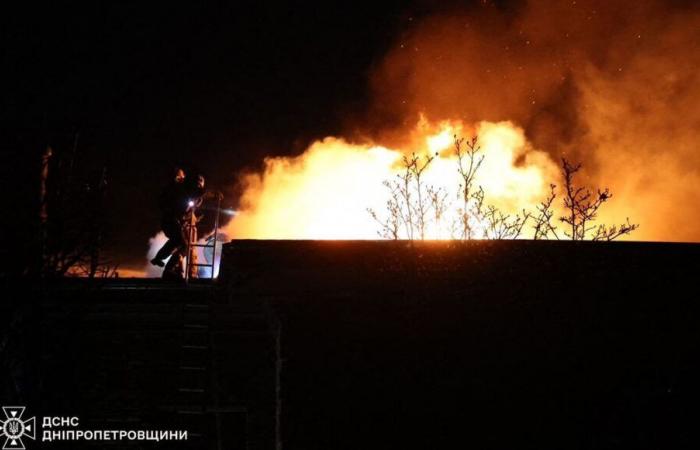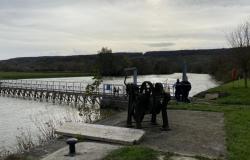
In kyiv, it is claimed that the Russians struck between 5 a.m. and 7 a.m. on Thursday, November 21, an industrial zone in the city of Dnipro, with, among other things, an RS-26 Rubezh type missile, a first since the start of the war. It is a solid-fuel intercontinental ballistic missile (ICBM), the largest in the arsenal of the major nuclear powers. The Kremlin is not commenting at the moment. Only by examining the debris on site in Dnipro will it be possible to say whether or not it is a Russian intercontinental missile.
The great witness Listen later
Lecture listen 7 min
The RS-26 Rubezh missiles are capable of traveling more than 5,000 kilometers to strike, as their name suggests, on other continents. Western Europe and the United States are within range of Russia's RS-26 Rubezh, and it is these missiles that can carry nuclear warheads. We are here in the register of escalation, of the Russian threat, of nuclear deterrence, even if in kyiv, it is made clear that this missile, in Dnipro, fortunately did not carry a nuclear charge.
A message sent from Russia?
We do not yet know precisely the extent of the damage caused by this Russian strike, but we must first and foremost see the message sent by Moscow. Indeed, from a purely military point of view, the Russians did not need an intercontinental missile to launch it at Ukraine without a nuclear warhead. Many other types of less expensive and less rare Russian missiles could have been used. Others, moreover, were used in this same Dnipro strike.
So, using this intercontinental missile, for the Russians, really seems to be above all a signal sent. This is the expected response after Washington's decision the previous weekend to authorize the Ukrainian use of long-range missiles to strike Russian soil. Response therefore in the form of one-upmanship and warning.
This shot “would mark a clear escalation”, according to the EU
“We are of course following reports that Russia has used an intercontinental ballistic missile against one or more targets in Ukraine. (…) It is obvious that such an attack would mark a new escalation on the part of (Vladimir) Putin“reacted Thursday Peter Stano, a spokesperson for the European Commission.





